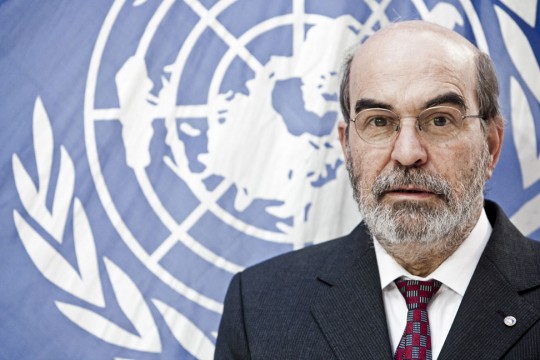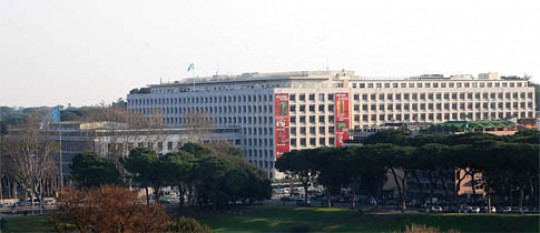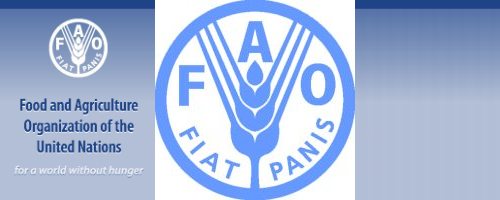New chief of UN’s food and agriculture agency outlines plans as he starts work
New chief of UN’s food and agriculture agency outlines plans as he starts work
 FAO Director-General José Graziano da Silva
FAO Director-General José Graziano da Silva
The new head of the United Nations Food and Agriculture Organization (FAO) has begun work, pledging today to increase the agency’s support to poor countries experiencing prolonged food crises.
“Ending hunger requires the commitment of everyone: neither FAO nor any other agency or government will win this war alone,” said Director-General José Graziano da Silva at a press conference in Rome, where the agency’s headquarters are located.
He stressed the need for FAO to work closely and transparently with its member States, other UN agencies, the private sector and civil society to achieve its goals, particularly in scaling up support to poor countries.
Ending hunger requires the commitment of everyone: neither FAO nor any other agency or government will win this war alone.
The global eradication of hunger remains his top priority, Mr. Graziano da Silva said, adding he was also focusing on developing more sustainable methods of food production and consumption, increasing fairness in the way food is managed, and completing the process of internal reform at FAO.
He also told UN Radio that the ongoing food crisis – the prices of many staple crops have spiked in recent years – will be among the biggest challenges he faces during the next 12 months.
“The prices will maintain high compared with the other years, previous years, and the volatility will also be very high,” he predicted.
Mr. Graziano da Silva said the Sahelian region of West Africa, where many countries are facing “food deficits” and unable to feed their populations, would be a key target of FAO’s programmes.
A Brazilian national, Mr. Graziano da Silva took over as Director-General of FAO on Sunday, succeeding Jacques Diouf and becoming the first Latin American to head the agency since it was created in 1945.
###
New FAO Chief moves on global eradication of hunger
Support to poorest countries to be scaled up
3 January 2012, Rome – Two days after taking over, FAO’s new Director-General José Graziano da Silva told his inaugural press conference that the total elimination of hunger and undernourishment from the world will be his top priority.
Graziano da Silva told journalists that with a term in office of only three and a half years there was no time to lose. FAO would begin by scaling up its support to a number of low-income, food deficit countries, especially those facing prolonged crises.
“Ending hunger requires the commitment of everyone: neither FAO nor any other agency or government will win this war alone”, said Graziano da Silva, adding that he wanted to work “in the most transparent and democratic way” with member countries, United Nations agencies the private sector, civil society and other stakeholders.
Hunger eradication was the first of five strategic priorities he intended to pursue at FAO, Graziano da Silva said. The others were: move towards more sustainable systems of food production and consumption; achieve greater fairness in the global management of food; complete FAO’s reform and decentralization; and expand South-South cooperation and other partnerships.
Rebuilding trust
“We need to rebuild trust between the Secretariat and Member States to move forward, and I plan to do so by promoting a transparent and constructive relationship with Member States and FAO Governing Bodies”, he said.
The Director-General also emphasized that he would strive to make FAO more effective and responsive by administrative cost-cutting and efficiency gains. He stressed that efficiency savings would not cut into FAO’s technical work and he would try to use them to strengthen the Organization’s direct assistance to countries.
“I am convinced that the Organization can make a significant and growing contribution to food security and sustainable food production and consumption in the world,” he concluded.
###
> UN Food and Agriculture Organization (FAO).
The Food and Agriculture Organization of the United Nations (FAO) is an intergovernmental organization and has 191 Member Nations, two associate members and one member organization, the European Union. Achieving food security for all is at the heart of FAO’s efforts – to make sure people have regular access to enough high-quality food to lead active, healthy lives.

FAO’s mandate is to raise levels of nutrition, improve agricultural productivity, better the lives of rural populations and contribute to the growth of the world economy.
The Food and Agriculture Organization of the United Nations (FAO) is working with its Members and the entire international community for achievement of the Millennium Development Goals.
These eight goals – each with specific targets and indicators – are based on the United Nations Millennium Declaration, signed by world leaders in September 2000. They commit the international community to combating poverty, hunger, disease, illiteracy, environmental degradation, and discrimination against women.
![]()
The eight Millennium Development Goals are:
Goal 1: Eradicate extreme poverty and hunger
Goal 2: Achieve universal primary education
Goal 3: Promote gender equality and empower women
Goal 4: Reduce child mortality
Goal 5: Improve maternal health
Goal 6: Combat HIV/AIDS, malaria and other diseases
Goal 7: Ensure environmental sustainability
Goal 8: Develop a Global Partnership for Development
* More information at UN Food and Agriculture Organization (FAO)
###
> United Nations (UN).
 The United Nations was established on 24 October 1945 by 51 countries committed to preserving peace through international cooperation and collective security. Today, nearly every nation in the world belongs to the UN: membership totals 192 countries.
The United Nations was established on 24 October 1945 by 51 countries committed to preserving peace through international cooperation and collective security. Today, nearly every nation in the world belongs to the UN: membership totals 192 countries.
When States become Members of the United Nations, they agree to accept the obligations of the UN Charter, an international treaty that sets out basic principles of international relations. According to the Charter, the UN has four purposes:
- to maintain international peace and security;
- to develop friendly relations among nations;
- to cooperate in solving international problems and in promoting respect for human rights;
- and to be a centre for harmonizing the actions of nations.
###
* The above story is adapted from materials provided by United Nations (UN)
** More information at United Nations (UN)





















